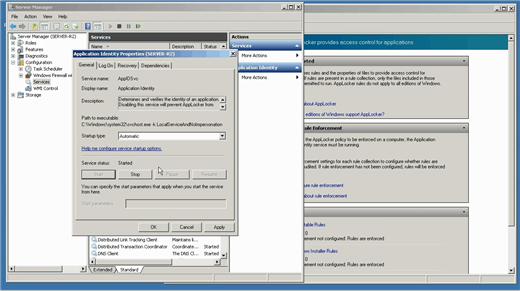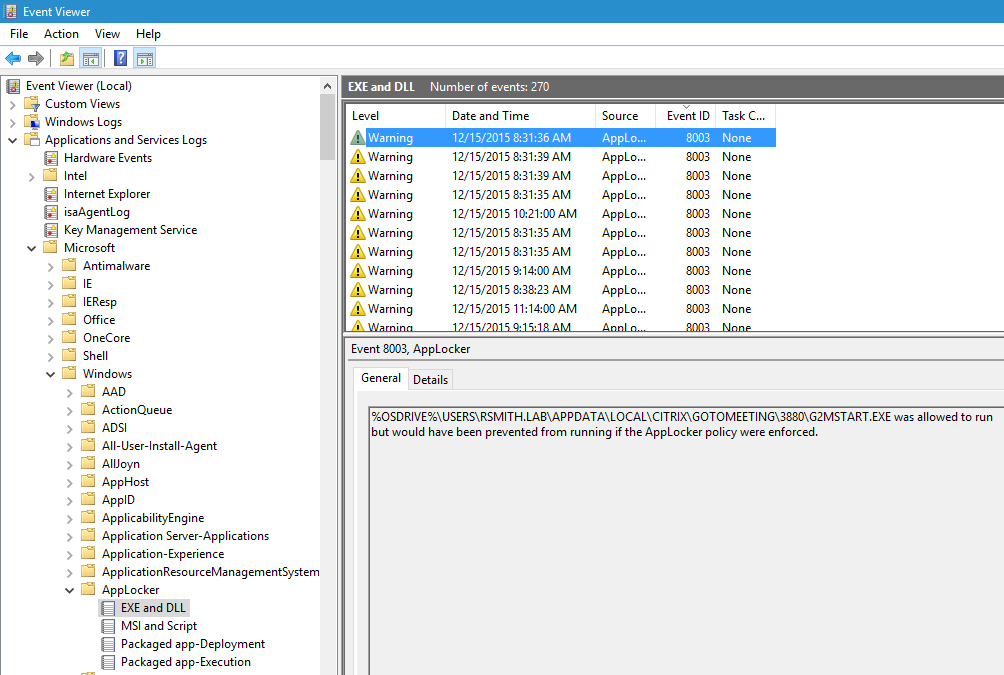

If you want to control all apps, you’ll note that AppLocker has policies for controlling apps by creating allowed lists of apps by file type. Among those improvements are audit-only mode deployment, automatic generation of rules from multiple files, and importing and exporting policies.Įach organization determines which apps they want to control based on their specific needs.
Applocker audit mode software#
Manageability improvement: AppLocker has improved a lot of things from its predecessor Software Restrictions Policies.Software standardization: to have a more uniform application deployment, you can set up policies that will only allow supported or approved apps to run on PCs within a business group.

Licensing conformance: AppLocker enables you to create rules blocking the running of unlicensed software while limiting licensed software to authorized users.Protection against unwanted software: you can exclude from the list of allowed apps any app that you don’t want to run and AppLocker will prevent it from running.Application inventory: AppLocker policies can be enforced in an audit-only mode where all application access activity is registered in event logs.Enhancing securityĪppLocker works well at addressing the following security scenarios:

Applocker audit mode windows#
And then by using Windows Powershell cmdlets for AppLocker, you’ll have an easier time creating and managing rules. Another feature enables the creation of rules on a staging server that you can test before exporting them to your production environment and importing them into a Group Policy Object (GPO).

In order to understand the impact of a policy before enforcing it, AppLocker allows you to use audit-only mode to first deploy the policy. You can also assign rules to individual users or security groups as well as create exceptions to rules. These include publisher name, file name, file version, and product name. It allows you to define rules based on file attributes and persisting across app updates. Features of AppLockerĪppLocker offers its clients several great features to help you to manage access control. However, it’s important to note that you can only configure AppLocker policies on computers running the supported versions and editions of the Windows operating system. And for a group of computers, you can use the Group Policy Management Console to author the rules within a Group Policy Object (GPO). For single computers, you’ll need to use the Local Security Policy Editor (secpol.msc). Microsoft allows you to author rules for a single computer or a group of computers. Users that are running the enterprise-level editions of Windows will find that AppLocker is already included. With that said, let’s go over how AppLocker helps you to control user app access. Because of its features, AppLocker will help organizations to reduce their admin overhead and the cost of managing computer resources. AppLocker is a platform that will give admins control over which apps and files users can run including packaged app installers, scripts, executable files, Windows Installer files, DLLs, and packaged apps. This is something that your IT guys could use to make their work easier and improve the overall management of employee devices. Most organizations could probably gain some benefits from deploying application control policies.


 0 kommentar(er)
0 kommentar(er)
